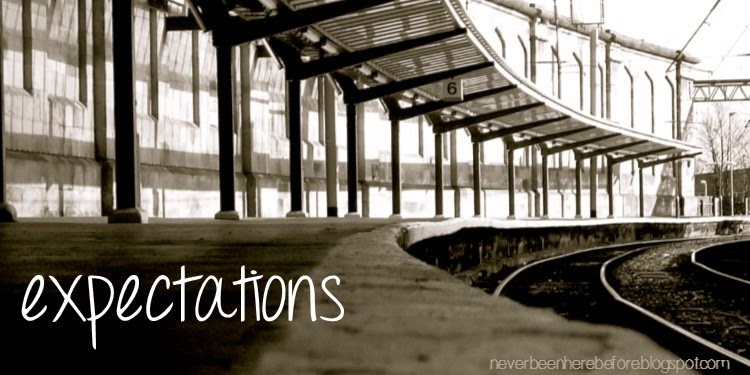blogging thru Scary Close [the risk of being careful - chapter 11]
I remember being part of a ministry in college where we were
trained to be mediators for our fellow students. We had a wonderful pastor and
counselor train us during a weekend retreat each year. Showing us how to
listen, how to manage conflict, how to do the hard things of life with our
fellow students. Every year he gave us a poem. I have a copy in one of my
scrapbooks. It’s about risk.
I haven’t thought about it for a while, but I remember it
having a profound effect on me, which is why I’ve kept it all these years. There
is so much emotional risk in what we are doing in this life with each other. And
because there is risk there is fear.
I spent a lot of time in my thesis exploring fear for the
learner and how it creates obstacles to learning. And sometimes even greater
obstacles occur in fear-based learning in how the learner uses what they’ve
learned. There are many contributing factors for transformational learning to
take into account as a teacher – and one of the biggest, in my opinion, was
climate. If the tone of the room, the attitude of the professor, the mood of
fellow students isn’t safe, fear becomes an obstacle.
When Don was in a weird place with his writing, taking
longer and longer to finish each book, a friend told him he was being too careful
with his writing. (pg. 142)
Careful.
I find myself repeating this word, letting it roll off my
tongue slowly. Letting the sound of those two syllables make its way up to my
ears and sink in. Deep.
I’m wondering about being
careful.
Finding connection with another human is hard. That’s why we
are so careful about it. We are careful who we invite in. This makes sense. Our
hearts are precious commodities; they should be handled with care. This hard
stuff goes beyond connection, though, and then makes its way to the most
painful of all emotions for the perfectionist and overachiever: failure.
This fear… this disequilibrating fear that messes with our
head and our heart and hands.
This fear that paralyzes us in the face of expectations and
those we love.
This fear that stop us from trying.
This fear of failure makes us be careful.
And being careful hurts.
It might not seem like it as we do all our maneuvering,
trying so hard to avoid and side-step the hard stuff that we just can’t deal
with because we don’t want others to see our junk and we don’t want to fail
others when they are so brave to show us theirs. Being this kind of careful hurts
those who want you to stop avoiding and stop being careful and just want you...
to be there. [This is
a weird kind of whisper, isn’t it?]
Everyone’s version of being there is different. I have one
friend whose idea of being there for me means calling me every morning at 7:50
while I’m putting on my eye makeup and just checks in. (This might be a little much, but I love her for it.) Another friend’s version
of being there is to send me stuff in a text that makes me laugh. Another's version of being there is sending me flowers. Another's is to take me to lunch or coffee. None of these are right and none of these are wrong. These are reflections of who they are and how they want to show me how much I mean to them. They are just being the friend they know how to be for someone who needs them.
There is fear that what you have to offer (your version of being
there) and this is the fear that it just might not be enough.
The fear of being found lacking is profound. I think this is
particularly true for men. The book, The Silence of Adam, has led me to this conclusion. A book that instead of depicting Eve as being deceived and then subsequently
deceiving Adam, the book describes that Adam was there the whole time, yet said
and did nothing. The author traces the problem with men to the silence with
which Adam became complicit in the first fall from God's grace. Adam failed to
trust in God's word and example, and modern men do the same when, instead of
following God's example in dealing with uncertainties, they retreat into
self-righteousness and toughness that mask anger and fear.
We fail each other. We’re human. We love, we hate. We get
angry, we retreat. We say things we regret,
we do things we regret.
But if we become too careful about this, we risk something
bigger than we can imagine.
“[I] wonder if the
time we spend trying to become somebody people will love isn't wasted because
the most powerful, more attractive person we can be is who we already are, an ever-changing being that is becoming and will never arrive.” (pgs. 148-149)
We’re all still learning to love.



Comments